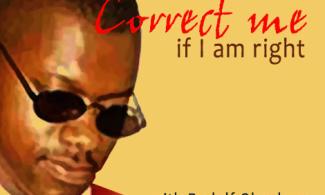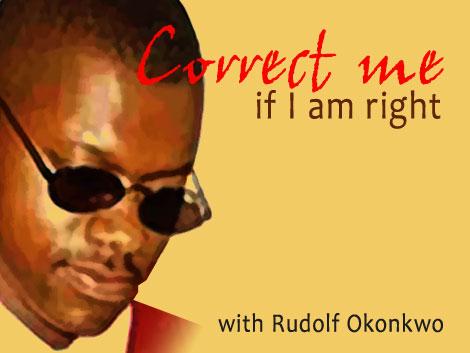
It was dead at night when calls from three different rooms in the motel simultaneously came to the front desk’s dashboard. I picked each call up, got the summary of the caller’s message and told the caller to hold. It was all the same message. A fracas was going on in one of the rooms at the back end of the motel. Bottles were being broken, chairs were being thrown around and a woman was screaming.

Just a few days before, a dead body was discovered in one of the rooms during the daily room service check. It was not on my shift. But this fracas, if not dealt with swiftly, could lead to something like that right on my shift.
I called 911. Though it was not my first time, my voice quaked and my heart pounded as if it was breaking out of its cage. Norfolk police dispatch knew exactly where the call was coming from. A call from the motel for police help was routine.
On weekends, because of the notorious nature of the motel business and the high crime location where we were, at least one police officer was stationed at the lobby. His job was to patrol the premises at night and proactively stop trouble before it escalated. But on weekdays, our Indian owner tried to save money by not bringing in a police officer. His reason was that it wasn’t busy enough to warrant extra expense. But on a day like this, you wished the police were at the premises.
Over time, I had interacted well enough with Norfolk police officers who came for such moonlighting assignment for extra pay. We’ve had both white and black police officers. When on shift and the motel was quiet, we spent time chatting and bantering inside the fortified control room attached to the lobby. I was a recent immigrant to America and was amazed that the police could really be your friend. In fact, I was fascinated to learn from listening to them and talking with them that the police were humans, too. Some have problems with their wives, children and relations. It was years after the OJ Simpson’s trial, but some have divorced and have problems with the burden child support system placed on American men. One black officer smoked weed, even when on shift.
They were humans like me with their flaws and follies. I also noticed what the authority they had as police officers did to their psyche. Some who were former army veterans, who saw action in the Gulf War, had some difficulties separating civilian police duties with military actions in war zones. One had killed people in war front and had no problem killing anyone who threatened him. Many did not go to college so their vision of law enforcement was not holistic. Whatever background they had, the common denominator for all of them was that the criminals must be kept in check to engender peace and civility. But while doing so, they all desired to go back home, each day, in one piece. I got the sense from listening to them that if anyone should be hurt, if anyone should die, it would rather be the “other”- the person at the opposite end of the law.
They particularly took a liking for me because I was their ideal immigrant- a hardworking African on an upward trajectory who appeared grateful to be in America and was not exhibiting an exaggerated sense of self-importance.
As I waited for police to arrive, I picked up a black cordless phone from my desk and put on my black leather jacket. It was cold. I had to walk out of my station, the control room, to go and meet the police. The room was like a locked up bulletproof glass cage from which the clerk interacted with customers. As the clerk on the night shift, we were encouraged never to get out of the cage. A semi-circle hole underneath the glass was sufficient enough to collect money from customers, pass motel room keys to them, a towel, a toothpaste or any other essentials they needed. Any other need that required a visit to their rooms could wait until the next day if the motel attendant had ended his shift. If the customer complained too much, we were required to offer him or her another room.
It did not take up to five minutes before three police vehicles with lights flashing and siren blasting sped into the hotel premises. I walked out of the control room and made my way to the back of the hotel to meet the police officers and explain to them what happened. I was sure I would know some of the officers sent by the dispatch and hoped the process would be very informal and straightforward – after all, they would be familiar with what we deal with in the motel.
It was dark and cold that winter night. I had my hands inside my leather jacket, holding tight to the black cordless phone in case someone called the motel while I was out of the control room.
The back end of the motel was not properly lighted. Bulbs of the floor lights had burnt out and the Indian owner was not eager to incur additional expenses if he could get away with it. The flashing lights of the police cars parked at the back did not illuminate much.
Half way to the back someone ordered me to stop.
“Stop there,” he shouted, “Put your hands up”.
I looked up. Three policemen were facing me from different directions with their guns drawn and pointed at me. At first I thought they were just playing. I even let a smile across my face as I waited for one of them to call me Rudolph, or Reindeer, or “the man from Africa.” But none did. I panned my face to see if I could identify any of the officers. All that I saw were stern-faced men walking towards me, yelling, “Hands up.”
“I was the person who called you,” I said.
“Put your f..king hands on your head,” the three officers yelled at the same time, their second finger resting comfortably on their guns’ triggers.
They inched closer without taking their eyes off the target- me. I had a few seconds to bring out my hands. Should I bring out my hand holding on to the black cordless phone or should I let it drop from underneath my black leather jacket onto the floor? How the neurons in my brain processed it in nano-seconds I did not know. But the neurons went to my memory bank, grabbed numerous stories told to me by police officers on how mere perception of a threat often led to harm. The brain processed it and issued a command to my frontal cortex to let the phone drop on the floor while my hands go up to my head.
That was what I did.
And that was how it was that I’m alive today to tell this story.
Unlike Michael Brown, there would not have been a grand jury constituted to consider if charges would be filed against the police officer who would have fired his gun at me. The police chief would have simply said that the officer mistook the cordless phone in my hand to be a gun and fired in self-defense. He would have said that if the victim, me, had only followed their instructions and raised my hands when asked to, that I would not have been shot.
Unlike Michael Brown, there would not have been protests across America because an African immigrant was shot in a motel in Norfolk, Virginia, two good years before 9/11.
On a day like this, I remember. And I’m thankful.